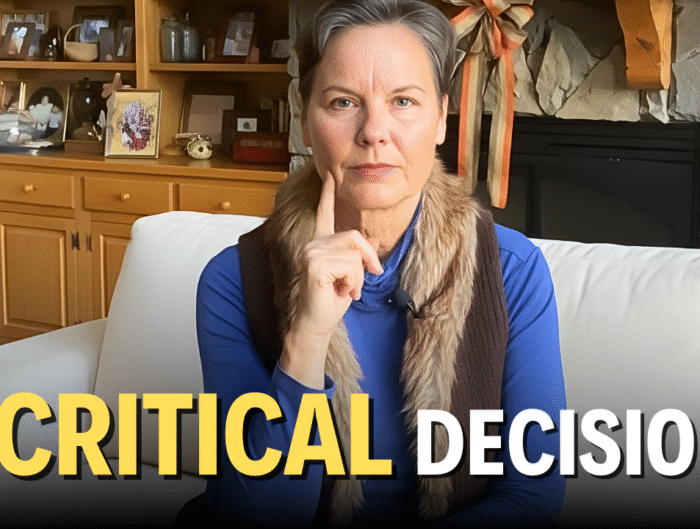Bone strength begins in the bloodstream. The blood transports oxygen, hydration, and nutrients to every cell in the body. It also carries hormones, collects waste and plays a role in the body’s self-repair (self-healing) mechanism. Bones are made of 40 percent calcium with minerals and collagen (protein). Many doctors point to the need for calcium to keep bones strong, but some see the SAD (Standard American Diet) as part of the problem. Some doctors and nutritionists believe that plants provide key nutrients for the blood to carry to the bone, which are important for increasing bone density.
Dr. Dean Ornish believes the weakening of bones is an imbalance between calcium intake and excretion rather than a calcium deficiency. Ornish is famous for using a plant-based diet filled with fruits, vegetables, legumes, etc. to reverse coronary heart disease. But diets high in plants also help prevent cancer and reverse osteoporosis, and eating plants consistently improves bone mineral density.
Many doctors call this low-acid eating because most plants leave an alkaline residue in the body whereas meats and dairy products are highly acidic. Diets rich in meat and dairy add acid to the blood. This acid accelerates osteoporosis by depleting bones of calcium, phosphorus and sodium. Blood pH is slightly alkaline ranging between 7.35 to 7.45. If the blood’s pH falls below 7.35 or above 7.45, the body cannot function properly.
According to Dr. Amy Lanou, “When the blood pH falls below normal, the body must restore it as quickly as possible. It does this by pulling calcium compounds from the bone into the blood to neutralize excess acids.” (Building Bone Vitality, by Amy Lanou and Michael Castleman) Lanou believes that a high-protein diet may reduce the blood’s pH. According to the National Academy of Sciences, as the amount of protein increases, so does the amount of calcium excreted in urine. But some protein such as plant-based proteins doesn’t produce acidity nor cause calcium to be excreted. And bone is made of 50 percent protein so enough protein must be a part of your diet.
Here are the nutrients that nutritionists and doctors are recommending to maintain and build bone density:
- Protein – Not too much, not too little. Nutritionists recommend .8 grams for every 2.2 pounds of weight. That would be 55 grams for a woman weighing 150 pounds or 65 for a man weighing 180 pounds. Wild-caught fish and salmon, nuts, seeds, legumes and other plant-based proteins are better and produce less acid. My nutritionist advised me to step my protein up from 55 to 85 while targeting bone density. She also advised that I use as much plant protein as possible. The richest plant sources are beans, nuts, seeds, and soy foods. A low protein diet can lead to bone loss (50 percent of bone is made from protein) while a high protein diet protects the bones—just not too high (not over 100 grams) and keep it more plant-based.
- Healthy fats – Omega 3 fatty acids such as avocado, flax seeds, salmon, etc. have been shown to protect against bone loss. These good fats are necessary for a heathy collagen matrix.
- Fruits and Vegetables – Women who consume 9 servings of plants high in bone-protective antioxidants had a decrease in bone turnover. The more plants the better for your heart, immune system, and preventing cancer and Alzheimer’s. Yellow and green vegetables benefit the most people with bone density. These promote bone growth in children and help adults to maintain density and strength. Cabbage, collard greens, broccoli, and herbs work the best.
- Calcium – It’s the primary nutrient for bone health, but it’s best to spread it out during the day. Include one high calcium food at every meal. It’s found in milk, cheese, leafy greens, and beans. Remember not to eat too much from milk and dairy products due to the acidic residue. Technically, calcium is a micronutrient, but due to the amount needed, I listed it here.
If you see a common thread, it’s the term “plant-based.” It may be hard to believe, but nutrients from a more plant-based diet filled with green leafy and yellow vegetables, fruits, nuts, seeds, and legumes over heavy meat, milk and dairy may just be what your doctor orders to increase your bone density. These are the key nutrients that will help keep your bones strong and healthy. Today’s lesson is “Eat more plants”!
Did some of this information surprise you? How many of you have heard for years only “drink more milk”? Next blog, we’ll look at the MICRONUTRIENTS (nutrients in trace amounts) needed to build bone density.
For Your Health,
Ginny




